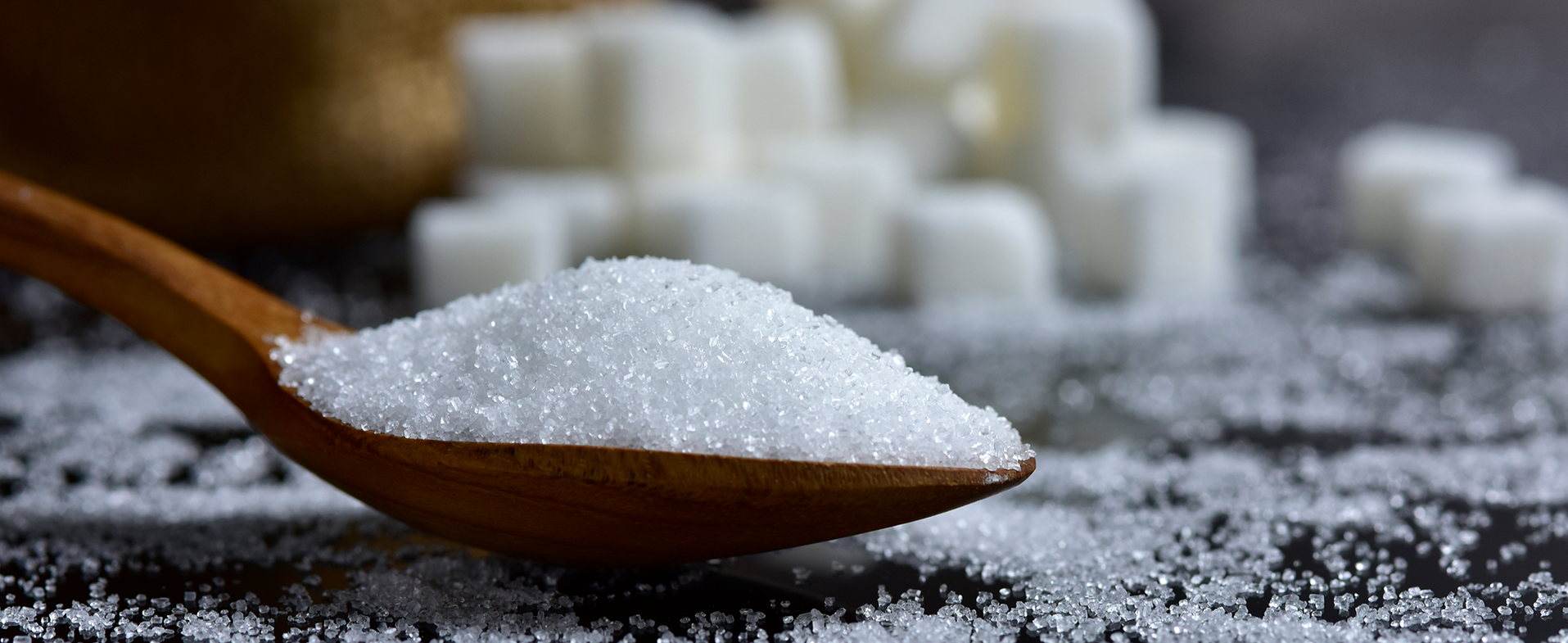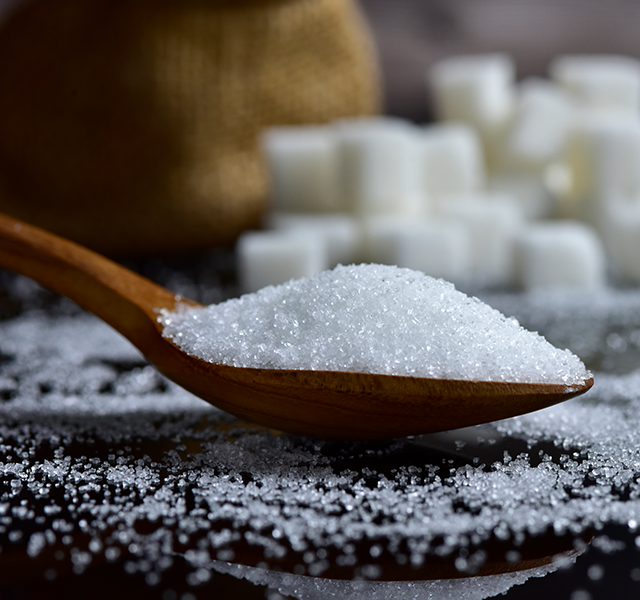Lung cancer is often thought of as a disease that’s fueled by smoking and air pollution. But a study using mouse models showed that glycogen, which is what sugar turns into when it’s stored by the body, may drive tumor growth in lung adenocarcinoma, the most common type of lung cancer.
Researchers found that high glycogen levels inside of a tumor accelerated cancer growth, whereas glycogen deprivation slowed tumor growth – meaning lung cancer tumors seem to be feeding on glycogen.
Lung Cancer, Sugar & Carbs
But this doesn’t necessarily mean that a diet high in sugar can speed up cancer growth. (Or that it can cause cancer to begin with.)
“While this study is informing, mouse models don’t always translate to human biology 100%,” says Fawzi Abu Rous, M.D., a lung cancer doctor at Henry Ford Health. “We get a lot of knowledge from preliminary research like this, but it doesn’t yet change how we treat patients.”
Another important distinction: Researchers didn’t find that high glycogen levels in general led to more aggressive cancer, but that high glycogen levels inside of a tumor led to more aggressive cancer.

Lung Cancer Care at Henry Ford Health
“This study doesn’t suggest that cutting carbs will prevent or treat cancer – and in fact, eating carbs as part of a well-balanced diet is important, especially if you have cancer,” says Dr. Abu Rous. “Let’s say a patient with lung cancer completely stops eating carbs and sugar. We don’t know if it will affect cancer cells, but we do know it will affect normal cells. Our normal cells need glycogen and glucose (blood sugar) to survive. So that means patients will become weaker and won’t be able to tolerate or benefit from the medications that are proven to work for their tumor.
“I always tell my patients to eat a balanced diet with a focus on protein because it’s very common for cancer patients to lose weight and muscle mass. It’s well established that patients who continue to lose weight and muscle mass unfortunately do worse with treatment.”
Glycogen As A Biomarker & Target For Cancer Treatment
The good news from this study? If these results translate to human studies, glycogen could potentially be used as a target for future treatments. Drugs could be developed that attack glycogen metabolism, benefiting those who have tumors with high levels of glycogen.
Not only that, but glycogen could also be used as a biomarker, or a prediction of who might have aggressive lung cancer.
“Biomarkers are tumor or patient characteristics that can help us predict someone’s prognosis or response to treatment,” says Dr. Abu Rous. “In human studies, we could take biopsies of tumors to measure their glycogen levels. If tumors that have high glycogen levels turn out to be more aggressive and lead to lower survival, then a tumor’s glycogen level can be used as a biomarker.
“That said, these results have to be replicated in several studies and settings to prove their accuracy before being adapted by the lung cancer community.”
Reviewed by Fawzi Abu Rous, M.D., an oncologist and researcher who specializes in lung cancer. He sees patients at Henry Ford Cancer – Detroit and Henry Ford Medical Center – Columbus.



